|
|
Thursday Review: Regulation for Big tech; Updates to OS Versions; Metadata on iOS PhotosBy Graham K. Rogers
This is aimed particularly at the App Store and not only will this demand that a second store be permitted, but that side-loading be made possible. Coming from the laissez-faire British Government of the Tories (except for Immigration) some of whose members rely on offshore banking to avoid taxation, this is a bit rich. Like Vestager in the EU from which the British have now claimed independence in the same way that the population is now free from Covid-19 regulations, the British government does not really understand technology. With the freedom from Covid regulations they are ignoring medical science along with epidemiology and relying on social science and herd immunity as proposed in the Great Barrington Declaration. The British will need a bit more than good luck in coming months. With the potential for side-loading, outlined in the proposed legislation in the same week as Pegasus was revealed, the government appears to be ignoring the technical experts for the sake of following another herd: the one that seeks short term political popularity; although heaven knows they are in need of that.
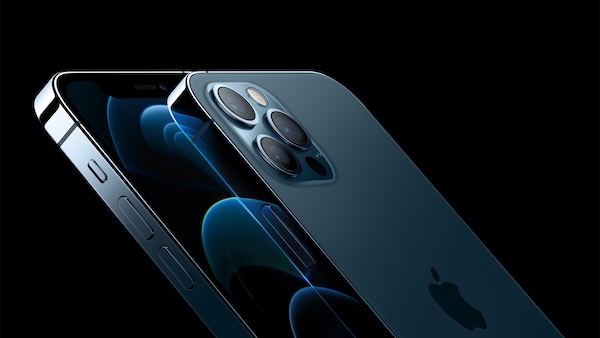
iPhone 12 - Image courtesy of Apple
And there was an interesting take in India where several are calling out Prime Minister, Modi, for treason. Already under fire for his reactions to the Covid pandemic, like many leaders around the world who have been found wanting in this crisis, this puts more pressure on the Indian leader who once appeared so popular with his nationalistic approach. Nationalism has seen the the political death of many would-be saviors (Hannah Ellis-Petersen and Michael Safi, The Guardian). This is blowing up into as big a scandal as the revelations on NSA surveillance, Cambridge Analytica-related activities, and the Wikileaks revelations of Chelsea Manning. Apple put out a somewhat ambiguous statement on the Pegasus problems, specifically on the way iMessage is affected (Patently Apple). Oliver Haslam (iMore) comments on Apple's claim that the iMessage flaw is not a threat to most, adding that there is no fix for the unlucky ones. At least users can now check if they have been compromised as a number of sites, including iMore (Oliver Haslam) put out links to a supposed check to see if the spyware affected your phone. This is not simply plug and play and will need some work in Terminal.
 Image imported directly from DSLR and Edited on iPad Pro
It is worse on iOS as not only are the editing tools different with an App that has the same name, but metadata functions (apart from Search) are unavailable. The basic metadata is there, but cannot be added to; and that includes keywords. As my friend said, "People are building rockets and planning missions to Mars" but Apple cannot get basic keyword functionality on photos. He added, Apple is a "2.5 trillion dollar company with a million engineers . . ." You might think they could assign an engineer just to make sure little something like this is consistent. I do not disagree.
After I had updated the iPhone I saw that WatchOS 7.6 was also available. Downloads of this OS are far easier these days and while I watched it began the "Preparing" stage. The update was complete by the time I came out of the shower. While the iPhone, Watch and Apple TV updated with no problems whatsoever, expected updates for both macOS (11.5) and iPadOS (14.7) failed to appear and were not released for a couple of days. The iPadOS update was finally shown on my devices on Thursday morning.
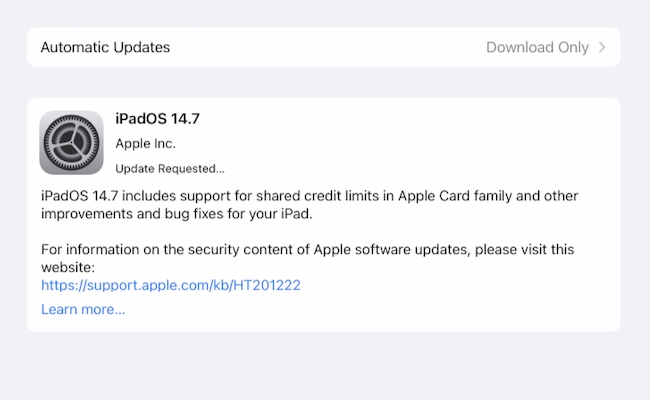
Hardware speculation is ramping up and this week I saw some rumors that told me the next iPad mini, which is strongly rumored, would use the A13 chip, while the next day, it the A15 chip Hartley Charlton, MacRumors) was the flavor of the day. That is also expected to be in the upcoming iPhone. The A13/A15 difference is aired in the article. The source of the rumor apparently uses both but a close reading showed that this is a different product code and is referred to as the "entry level" iPad. Some may have been confused and thought that entry level meant the iPad mini because it was small. A welcome part of the rumor pitch is the suggestion that the iPad mini could have the USB-C port. I have also been hoping for the last year or so that Apple moves the iPhone to this port.
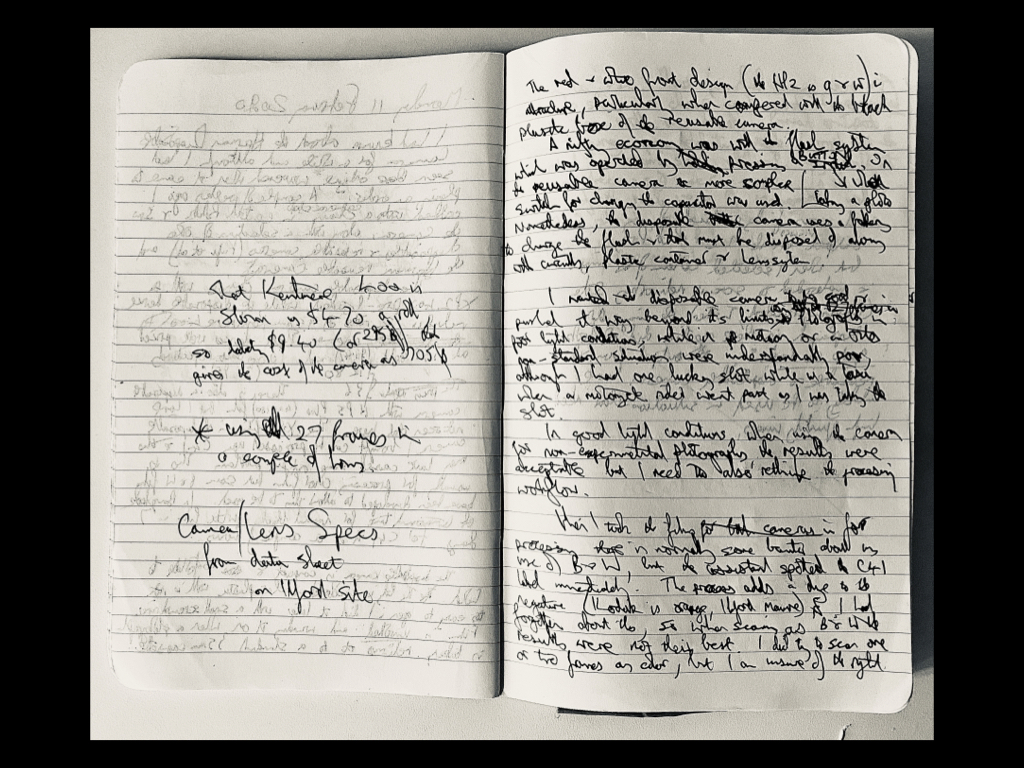 Presentation shot of handwritten text
Unfortunately for these students who are mainly not native speakers of English, there are plenty of ways for me to suggest improvements, so I mark up the text and send the work back with a simple comment: Fix. This may happen several times with some students. My own approach after the handwritten stage is to use a text editor.
The next stage is odd. I either markup and view in a browser before uploading, or copy to a Word Processor and run through several times. With each medium change (paper to text editor, text editor to browser or word processor) my eyes and brain examine the content in a different way and each change allows me to spot problems I had not noticed before. I am afraid the students do not grasp this: all they want is to finish the task as quickly as possible. BBEdit was updated this week from 13.5.7 to 14 which has a number of improvements. These include built-in support for Language Server Protocol (LSP) servers, a dedicated Notes window, six new languages including Go and R, a "Repeat Last Command" command, and recognition of Anaconda environments. It looked as if I had a license and a query with BBEdit gave me an answer within a couple of hours. I bought the upgrade and downloaded version 14, which I am using to type this. I note that it also has a new logo, which I have now dragged to the Dock.
I expect that the problem cable was designed down to be just strong enough for the purpose, although that hinge for the screen must have an awful lot of flexing day to day. If you take a metal paperclip and bend it back and forth, within a few minutes it will break (metal fatigue), although just before it goes it will become hot, so be ready. The same must happen with the plastic cable (apart from the heat, hopefully) and eventually, the cable will begin to weaken allowing the contacts inside to fail. With the MacBook Pro this was initially intermittent on my device, but eventually the full footlights effect appeared. As I knew that there was a repair program for this I took it along to the (then) new Icon Siam Apple Store (currently closed due to Covid restrictions) and was told that not only did it qualify for the screen fix, but also the keyboard would be replaced (the intermittent keys problem), and that there was also a replacement program for the battery which I had not known about. It was ready a few days later and it was almost like a new Mac with all those parts replaced. The repairs cost me nothing apart from taxi fares.
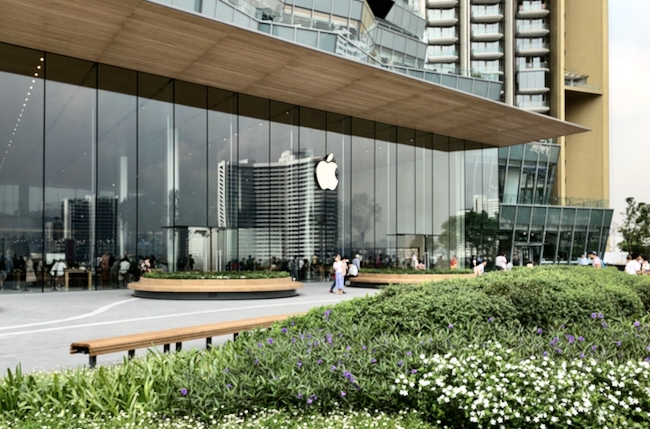 Apple Store, Icon Siam, November 2018
Graham K. Rogers teaches at the Faculty of Engineering, Mahidol University in Thailand. He wrote in the Bangkok Post, Database supplement on IT subjects. For the last seven years of Database he wrote a column on Apple and Macs. After 3 years writing a column in the Life supplement, he is now no longer associated with the Bangkok Post. He can be followed on Twitter (@extensions_th) |
|


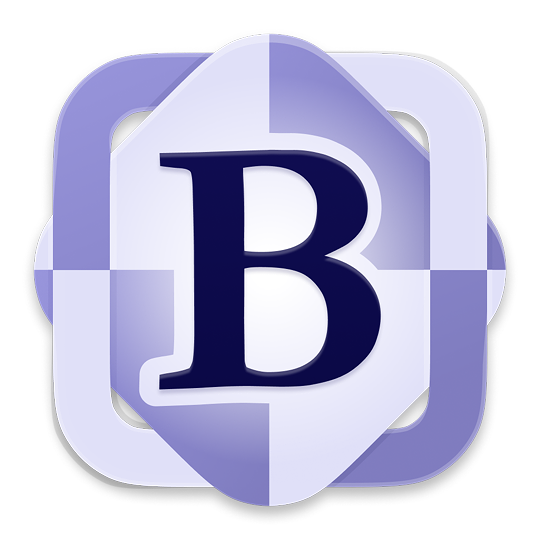 As I type I begin to make improvements as I spot things: missing ideas, logic, contradictions, as well as spelling and grammar errors. In the initial stage, jotting ideas down there are always errors. Moving to the unformatted content of a text editor, like BBEdit, allows me to make improvements. My brain is hard at work.
As I type I begin to make improvements as I spot things: missing ideas, logic, contradictions, as well as spelling and grammar errors. In the initial stage, jotting ideas down there are always errors. Moving to the unformatted content of a text editor, like BBEdit, allows me to make improvements. My brain is hard at work.
